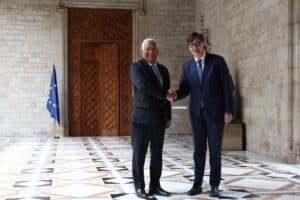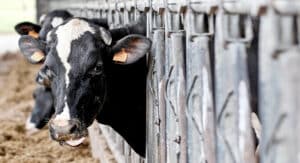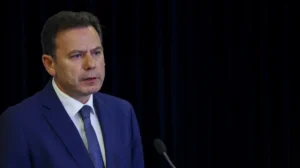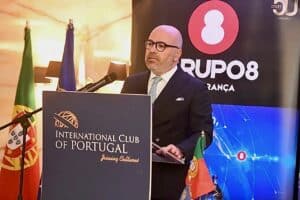National Energy and Climate Plan updated to show “more ambition”
Public consultation opened this week on a revision of the National Energy and Climate Plan for 2030 (PNEC), setting “more ambitious targets” for reducing greenhouse gas emissions and increasing the share of renewable energies, and outlining “a clear path to achieving climate neutrality by 2045”.
In other words, a plan compiled only three years ago is to be updated in keeping with Brussels’ Green Deal strategy – an ambition that is not taking all member states, or even citizens, with it.
Portugal, however, is very much ‘with the programme’. And this latest news comes on the back of an announcement by environment minister Maria da Graça Carvalho last week that a national strategy for critical raw materials is being launched to set the basis for defining exploration areas for materials with potential in the country, such as copper.
Copper is in fact just the tip of the iceberg.
Expresso stresses that “Portugal has a complex and diverse geology, which gives it enormous potential in metallic and non-metallic mineral resources”.
The average person may be unaware, but Portugal has had a Mineral Resources Cluster since the time of the last PSD government. It is this cluster that the new government of Luís Montenegro is seeking to ‘turbo charge’, as a way of powering growth and Portugal’s relevance on the world stage.
The cluster’s president, Luís Martins, explained to CNN Portugal last week that this country is “one of the top three producers of copper, one of the top three producers of wolfram, and we are the leading producer of zinc in Europe at the moment”.
In addition, Portugal is renowned for the quality of its natural stones, which are exported to more than 160 countries.
Add to this mineral wealth the current fixation on lithium (due to its use in electric batteries for EVs), and untapped reserves of tungsten and feldspar, and it is easy to see how the country can be viewed as “in a position to make a positive contribution to the objectives of the PNEC 2030 and to guaranteeing the supply of raw materials in Europe”.
Luís Martins admits: “We have reached a time when we are going through a new revolution, in this case an energy revolution in which resources will be needed more than ever to ensure this transition.”
Thus, the revision of the national energy and climate plan, available for public consultation through the summer holidays – which provides for eight new measures, seven of which have no specific timetable for adoption, apart from the broad range from 2024 to 2030.
Only one has a tighter implementation deadline (within the next two years), and this is the ‘streamlining of licensing procedures’ (again, something environmental groups are not turning cartwheels over). The rest, to be realised by the end of the decade, involve:
- Drawing up national programmes for prospecting natural resources;
- Drawing up the National Geological Resources Strategy;
- Creating an industrial and knowledge development cluster;
- Realising the potential of mineral resources containing lithium;
- Revealing and capitalising on critical mineral resources;
- Monitoring the internal market and raw materials value chains;
- Promoting circularity through national circularity programmes;
These measures will involve various organisations, writes Expresso, including the ministries of the Environment and Energy and the Economy, the Directorate-General for Energy and Geology (DGEG), the National Energy and Geology Laboratory, IAPMEI, AICEP, the Portuguese Environment Agency and EDM – Empresa de Desenvolvimento Mineiro. (These organisations are either connected to the energy sector, or to business/growth. There is no environmental body taking part in this revision, the only source of funding of which is the RRP – Brussels’ multi-billion-euro Recovery and Resilience Plan).
This far, the only area in which Portugal has moved forwards with regard to the (original) PNEC 2021-2030, set up by the former Socialist government, is in the licensing for lithium exploration (a strategy that has gone on to become fraught with local opposition).
As Expresso recalls, there are currently two lithium exploration concessions in Boticas (Savannah Resources) and Montalegre (Lusorecursos), while six areas have been identified for prospecting tenders.
“These areas will be the subject of an international tender with the aim of promoting prospecting and research activities to adequately determine the existence of mineral deposits, with a view to their exploitation and valorisation”, says the ‘new’ text for the PNEC, now under public consultation.
Where this will leave the multitude of local protests to lithium mining in the north of Portugal remains to be seen. For now, it is clear, the government is intent on falling in line with Brussels’ ‘Critical Raw Materials Act’.
Critical Raw Materials Act stands as strategy for ‘strength’
The Critical Raw Materials Act (CRMA) entered into force little more than two months ago (May 23, 2024). As reports at the time explained, “at present, the EU relies almost exclusively on imports from suppliers concentrated in a limited number of countries – making it vulnerable to geopolitical risks and supply chain disruptions.
“The CRMA aims to secure the raw materials supply chain and sets clear priorities for the EU and Member States in order to mitigate future supply risks. As the world is increasingly realising the importance of minerals to achieve a transition to a lower carbon economy, the CRMA is part of a significant push by the EU to upscale and speed up the development of green technologies needed to meet the EU’s net-zero goals”.
The revised PNEC will be open to public consultation until September 5 and will then be discussed in Parliament.
Said environment minister Maria da Graça Carvalho in the government’s press release: “This is not just a plan: it represents a development project for Portugal, harnessing the country’s renewable energy potential to stimulate industrial activities, economic growth, the creation of green jobs, innovation and technological development. PNEC 2030 is strategically positioned to combat climate change, guarantee energy security, attract investment and generate competitiveness.”
NB: It is a well-known feature of major developmental plans to be presented in the heat of the summer and run for public consultation during the month of traditional Portuguese holidays.
By NATASHA DONN
natasha.donn@portugalresident.com




















